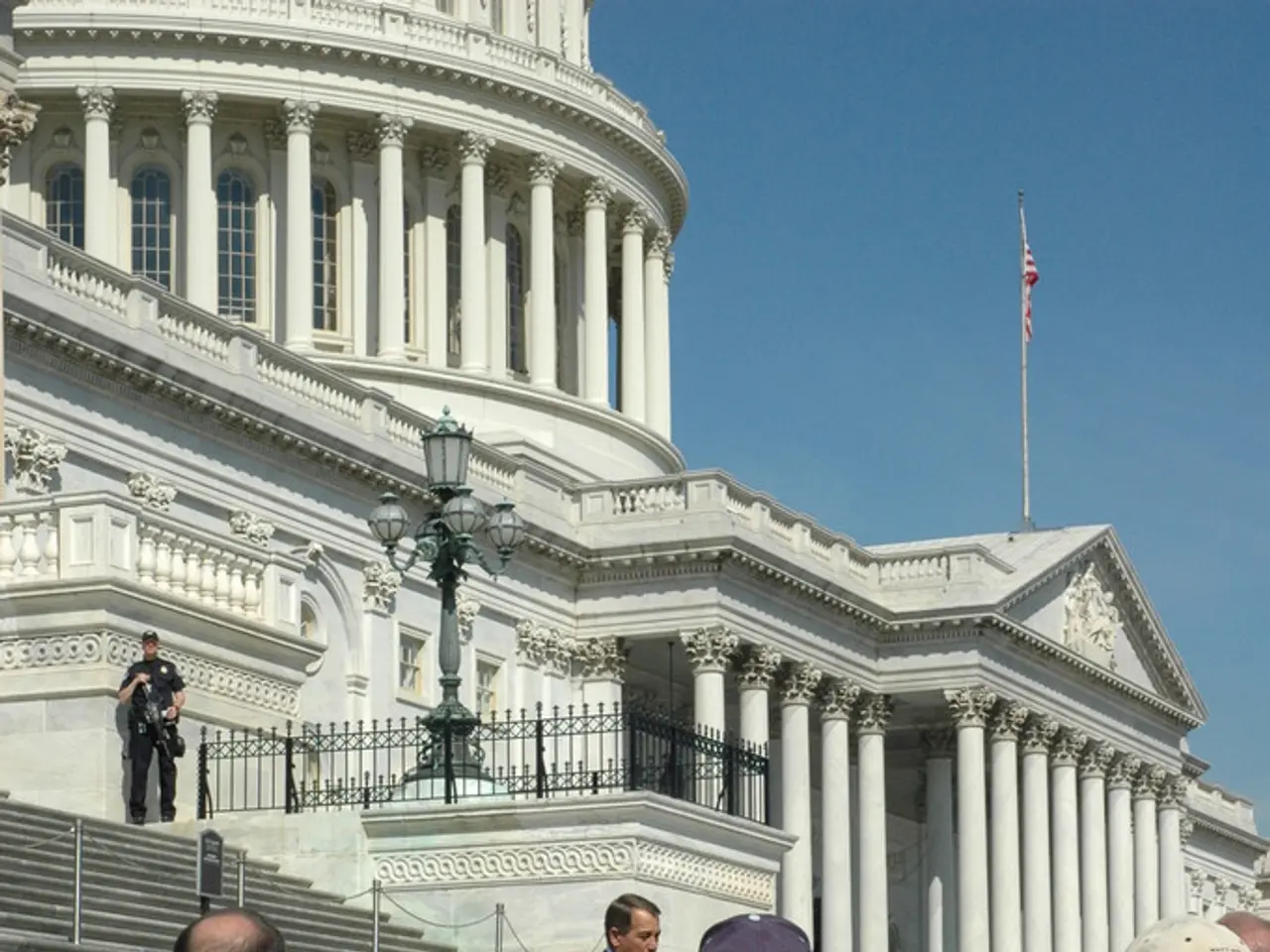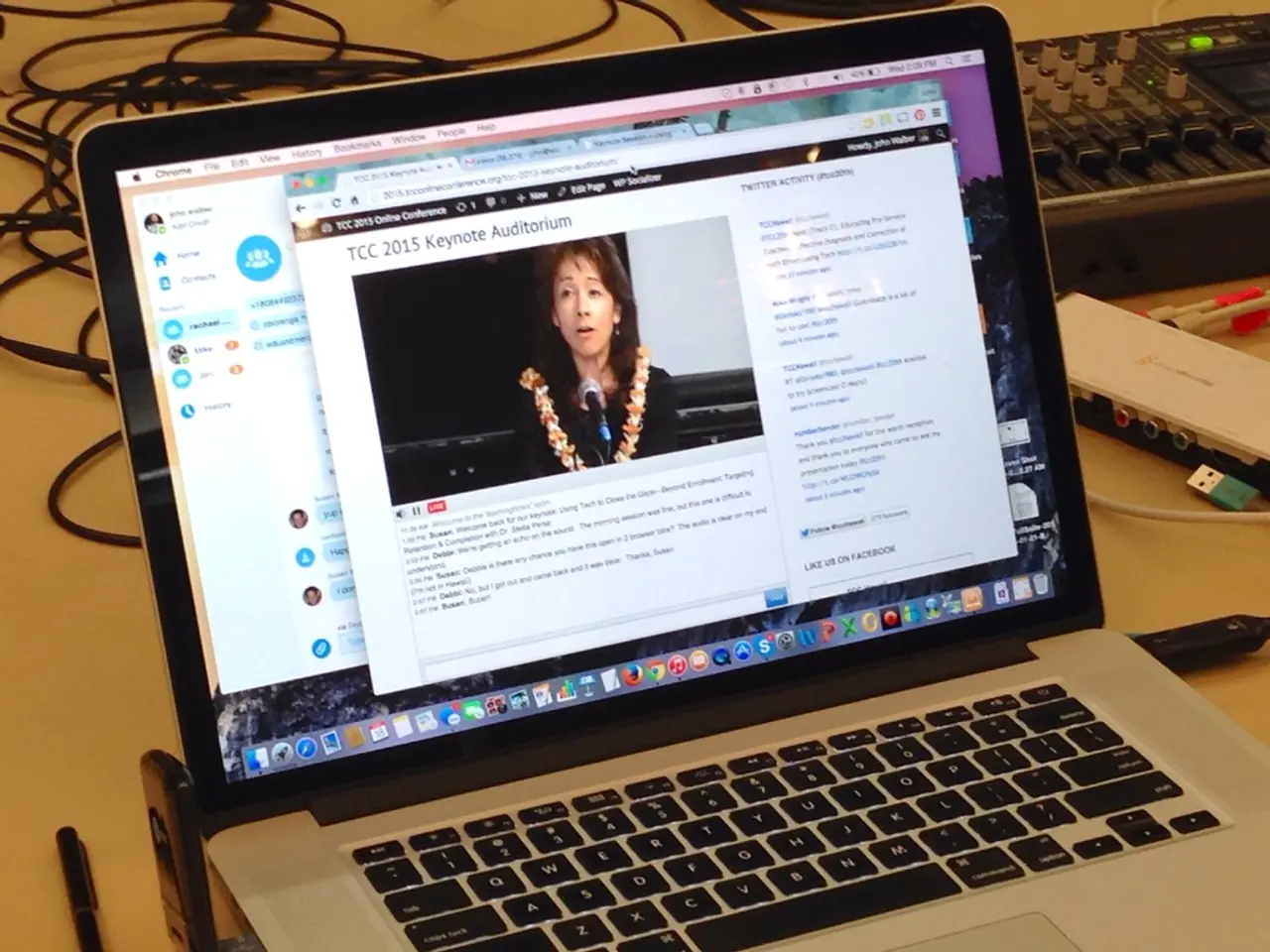Unveiling the Concealed Fissures in Microsoft's Q4 2025 Empire
Microsoft's AI strategy is currently built upon OpenAI models, a partnership that has significantly contributed to the success of its Azure cloud business. However, the future of this partnership is uncertain, raising questions about the longevity of Microsoft's AI dominance.
Current Status
Microsoft and OpenAI are in advanced negotiations to secure ongoing access to OpenAI's technology. This partnership could potentially lead to OpenAI's transition to a for-profit status. Despite regulatory scrutiny and tension surrounding the potential shift, Microsoft has expressed its interest in maintaining the partnership beyond 2030, even if OpenAI achieves Artificial General Intelligence (AGI).
Future Implications
The continued partnership would allow Microsoft to utilise OpenAI's latest models, such as GPT-5, across its ecosystem, including Microsoft 365 Copilot and Azure AI Foundry. This collaboration could help Microsoft solidify its position in AI technology and cloud computing, maintaining its competitive edge against other tech giants like Amazon and Google.
However, Elon Musk's comments suggesting that OpenAI might surpass Microsoft have highlighted the competitive landscape in AI. Musk's remarks may reflect broader industry concerns about AI partnerships and dominance.
Impact on Microsoft's AI Strategy
Microsoft is heavily investing in AI, with GPT models being central to its strategy. Embedding advanced generative AI into its products is a key part of this plan. The partnership ensures Microsoft remains a primary cloud provider for OpenAI's workloads, though it has lost exclusive status.
The success of this partnership could significantly bolster Microsoft's competitive position in AI and cloud services. However, the partnership's future is influenced by financial, regulatory, and competitive factors.
Recent financial statements have revealed concerning signals, such as net recognized losses on OpenAI investment and a $13 billion funding commitment to OpenAI. These financial strains, coupled with OpenAI's recent moves toward consumer products that directly compete with Microsoft's ambitions, have raised concerns about the longevity of the partnership.
The Looming Existential Crisis
OpenAI could exit the partnership within 2-3 years, potentially causing an existential AI crisis for Microsoft. When this happens, Microsoft faces a choice: accept a diminished position as AI infrastructure provider or spend tens of billions trying to recreate what they could have built instead of partnering.
The market cap of Microsoft, assuming AI leadership, is $3 trillion. However, the success of Azure, which surpassed $75 billion in annual revenue in Q4 2025, is real but has an expiration date. The answer may transform Microsoft from AI leader to AI casualty, proving that in the age of artificial intelligence, models matter more than money, and partnerships are no substitute for proprietary innovation.
In technology, you either own the core innovation or you're at the mercy of those who do. The OpenAI relationship is showing financial strain, and the market expects 20% growth from Microsoft for the foreseeable future. The empire is vast, the growth is real, but the foundation is rented. And the lease is coming due.
An OpenAI departure could trigger a 30-40% correction in Microsoft's stock, underscoring the importance of Microsoft finding a solution to secure its AI future. The clock is ticking, and Microsoft is about to learn this lesson the hard way.
[1] Kohler, C., & Bilton, N. (2022, October 21). Microsoft's AI Strategy: What Happens When OpenAI Becomes ClosedAI? [Web Blog Post]. Retrieved October 23, 2022, from https://www.wired.com/story/microsoft-openai-strategy-artificial-intelligence-ai/
[2] Smith, A. (2022, October 19). Microsoft's AI Strategy: A Ticking Time Bomb? [Web Blog Post]. Retrieved October 23, 2022, from https://www.forbes.com/sites/andrewsmith/2022/10/19/microsofts-ai-strategy-a-ticking-time-bomb/?sh=75e87b6673e4
[3] Chan, E. (2022, October 18). Microsoft's AI Strategy: The Empire Strikes Back? [Web Blog Post]. Retrieved October 23, 2022, from https://www.techcrunch.com/2022/10/18/microsofts-ai-strategy-the-empire-strikes-back/
[4] Johnson, M. (2022, October 15). Microsoft's AI Strategy: A Race Against Time? [Web Blog Post]. Retrieved October 23, 2022, from https://www.zdnet.com/article/microsofts-ai-strategy-a-race-against-time/
[5] Williams, J. (2022, October 14). Microsoft's AI Strategy: A House Built on Sand? [Web Blog Post]. Retrieved October 23, 2022, from https://www.bloomberg.com/opinion/articles/2022-10-14/microsoft-s-ai-strategy-a-house-built-on-sand
- Microsoft is currently negotiating with OpenAI to maintain their relationship, which could lead to OpenAI's transition to a for-profit status.
- If the partnership continues, Microsoft intends to utilize OpenAI's latest models across its ecosystem, potentially solidifying its position in AI technology and cloud computing.
- Elon Musk's comments about OpenAI potentially surpassing Microsoft highlight the competitive landscape in AI, reflecting broader industry concerns.
- Microsoft is heavily investing in AI, with GPT models being central to its strategy, aiming to embed advanced generative AI into its products.
- The success of Microsoft's Azure cloud business, which surpassed $75 billion in annual revenue in Q4 2025, is partly due to the partnership with OpenAI, but it faces an uncertain future due to financial, regulatory, and competitive factors.
- OpenAI's moves toward consumer products, which compete with Microsoft's ambitions, and recent financial strains have raised concerns about the longevity of the partnership.
- If OpenAI were to exit the partnership within 2-3 years, Microsoft might face an existential AI crisis and could consider spending tens of billions to recreate what they could have built instead of partnering.
- The market cap of Microsoft, assuming AI leadership, is $3 trillion, but the success of Azure has an expiration date, making the company's future in AI a critical concern.
- In technology, owning the core innovation is crucial, and the OpenAI relationship is showing financial strain, raising questions about Microsoft's ability to secure its AI future and potential stock market corrections.




